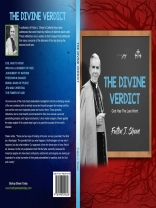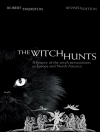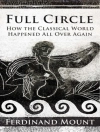The Divine Verdict
Numerous articles, radio reflections, and books would continue to be produced by Sheen throughout the war. Given their importance and the impact they had on society in his day, it seemed appropriate to bring together once again some of Archbishop Sheen’s reflections on war and peace taken from his book The Divine Verdict (New York: P.J. Kenedy and Sons, 1943)
Here you will a collection of Sheen’s Catholic Hour radio addresses that were heard by millions of listeners each week. These reflections are a series of short essays that addressed the many concerns of the listeners of his day during the war.
Sheen answers questions about the moral basis of peace, the power of God, war being a judgement of God and the judgement of nations. Sheen also explains how evil Has Its Hour and how our freedoms are in danger.
His were some of the most clearly delineated investigations into the underlying causes of the war combined with an entirely sound and hopeful program for winning both the war and the even more important peace are found in them. These powerful reflections can be most heartily recommended for their wise counsel, sane and penetrating analysis, and logical conclusions.
Sheen writes, ‘There are two ways of looking at the war: one as a journalist, the other as a theologian. The journalist tells you what happens; the theologian not only why it happens, but also what matters. Our approach is from the divine point of view, first of all, because it is the only explanation which fits the facts; secondly, because the American people who have been confused by catchwords and slogans are seeking an inspiration for a total surrender of their great potentialities for sacrifice, both for God and country.’
Sheen is firm in his conviction that real peace cannot be declared, it must be made. It is with peace-making and the fundamental conditions on which peace must be based that this book is concerned. In its seven forceful and readable chapters, it challenges the theory of many planners today who posture that military allies are necessarily political allies; it affirms that a common hatred can make nations allies, but only a common love can make them neighbors; it denies the primacy of action over reason, in the sense that the will of the state is that which makes a state right; and it contends that utility does not establish justice, but it is justice which makes utility.
With the same lucid and persuasive reasoning that has made him outstanding both as a writer and as a lecturer, Sheen continues to challenge people of goodwill to unite for the preservation of personal rights, freedom of conscience, human justice, and civilization itself – all of which are in danger in the present conflict. Here, one will recognize the urgency of Sheen’s subject matter, and will find pillars of peace and promise in his far-sighted principles.
Table of Contents
INTRODUCTION
EVIL HAS ITS HOUR
WAR AS A JUDGMENT OF GOD
JUDGMENT OF NATIONS
FREEDOM IN DANGER
MORAL BASIS OF PEACE
JEW AND CHRISTIAN
THE POWER OF GOD
Jadual kandungan
Table of Contents
INTRODUCTION
EVIL HAS ITS HOUR
WAR AS A JUDGMENT OF GOD
JUDGMENT OF NATIONS
FREEDOM IN DANGER
MORAL BASIS OF PEACE
JEW AND CHRISTIAN
THE POWER OF GOD












